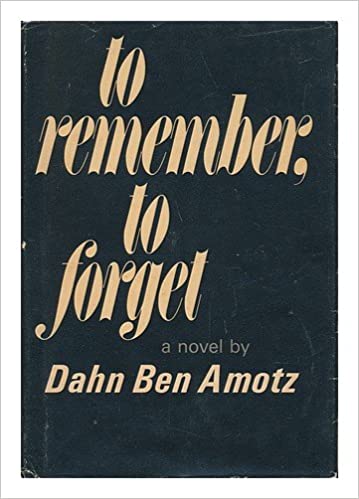
THAT HOLOCAUST POST – HOW TO REMEMBER, HOW TO FORGET
How should a conservative Jew relate to the Holocaust? In short, in the same manner, a conservative should relate to life in general – through the four virtues of the ancients: Fortitude, justice, prudence, and above all temperance.
My own Holocaust street-cred is substantial: My family on both sides had been wiped out in Poland with only my grandparents and half my great-grandparents – a brave stock of survivors, soldiers, founders and pioneers – making it to Israel (then under the British Mandate). As a boy growing up in that country, the Holocaust was almost impossible to ignore. For one thing, it was not uncommon to encounter survivors. Now a very unlikely occurrence. For another, the Holocaust was, and still is, fused into Israel’s state religion. Every April, against the swift bloom of the short Israeli spring, we marked “Holocaust Day.” Ever replete with solemn ceremonies and “Never Again!” speeches. One’s inculcation in this started very early: I remember being assigned a small part in a Holocaust ceremony in elementary school. Alas, it did not turn out very well. At rehearsal I couldn’t stop giggling – my assigned text had contained the word “excrement” – and so ever the scatological embarrassment, I was dismissed.
Perhaps that episode of ghettos and doo doo, concentration camps and poop, had made me into the holo-heretic I am today. While my sympathy for the victims and their lost worlds runs very deep, I find the cult of the Holocaust insufferable and demoralizing.
In America where I now live, the situation is not much different. Despite a history of Jewish prosperity as long as the history of American prosperity itself, American Jews seem obsessed. Asked by Pew, 73% of American Jews listed the Holocaust as “essential” to their Jewish identity. Only 19% brought up observing the Jewish faith.
Is this a problem? I believe so. While memento mori, remembering one’s own mortality, is a healthy, humbling sentiment, building one’s identity on the basis of mass-death is very likely a recipe for paranoia. Like so many other pathologies, this one too seems to affect American Jews comparatively more. In Israel, the Holocaust is part of the Resurrection Myth, the core of the state’s religion: Two millennia of weakness reach their climax in the death camps but are then resolved through Zionism and the resurrection of a powerful Jewish state of farmer-soldiers who punch back. While morbid, the morbidity is resolved in a triumph, not unlike the story of the Passion.
In America however, the memory of the Holocaust is never resolved. Like a dissonant chord, it remains in the air, haunting and harsh, never reaching a triumphal resolution. Indeed many Jews have transformed themselves into mummified sentinels of the old necropolis, screeching “Don’t touch my Holocaust!” at any intruder daring to invoke it. Only recently, innocent Americans comparing the idea of a vaccine passport to the Yellow Badge have found themselves excoriated ferociously by such guardians of the dead.

Back to the Pew findings from 2013, it is astonishing that 73% of us Jews find the death camps as “essential” to our identity. This brings to mind a misshapen scab, forming around a painful wound without ever healing it. In an unresolved Hegelian dialectic, the Jew and the Holocaust are locked together, forever defining one another, never transcending to a resolution.
The conservative Jew, however, can reach a resolution and complete the Hegelian triad. This is done through the classical virtues: Fortitude, to resist the temptation of victimhood; Justice to remember the victims respectfully; Prudence to know the truth; and above all – Temperance, to avoid excess, paranoia, and obsession.
A novel by an illustrious Israeli, Dan Ben Amotz, sums it up well: To remember, to forget.
P.S. Clearly, nobody in Arizona visits this website.
Follow us on Twitter!
And sign up for updates here!
One Reply to “THAT HOLOCAUST POST – HOW TO REMEMBER, HOW TO FORGET”